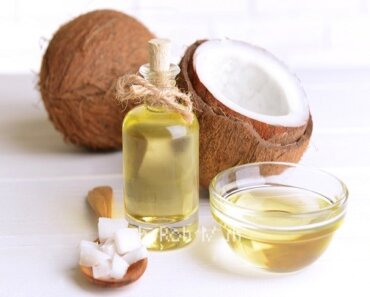Best Face Oil for Dry Skin: Moisturize Every Skin Type
When it comes to achieving glowing skin, choosing the right products is essential, especially for those with dry skin. One of the best options available on the market today is a nourishing face oil. These lightweight oils not only provide hydration but also help to lock in moisture, making them an ideal choice for individuals struggling with dry skin issues. In dit artikel, we will explore the best face oils for dry skin, how they work, and how to incorporate them into your skincare routine for maximum benefits. Whether you’re dealing with sensitive skin or combination skin, we’ve got you covered!
What is the Best Face Oil for Dry Skin?
Understanding Facial Oils
Facial oils are concentrated formulations that contain nourishing ingredients derived from plants, seeds, and nuts. They are designed to penetrate the skin barrier and deliver hydration deep within the skin layers. Unlike traditional moisturizers that may sit on top of the skin, a good face oil for dry skin interacts with the skin’s natural moisture barrier, enhancing its ability to retain moisture. This makes them an excellent addition to any skincare routine, especially for those who experience dryness or flakiness.
Top Oils for Dry Skin
When selecting the best facial oil for dry skin, consider options like jojoba oil, argan oil, en rosehip seed oil. Jojoba oil closely resembles the skin’s natural oils, making it an effective moisturizer without clogging pores. Argan oil is rich in vitamin E and essential fatty acids, helping to improve skin elasticity and provide a youthful appearance. Rosehip seed oil is another fantastic choice, known for its ability to reduce scars and fine lines while offering intense hydration. Daarnaast, coconut oil andmarula oilare also great for deep moisturizing, making them favorites among those with dry skin types.
How to Choose the Right Face Oil
Choosing the best face oil for dry skin involves understanding your specific skin type and what it needs. Look for lightweight oils that absorb quickly and don’t leave a greasy residue. Bijvoorbeeld, if you have sensitive skin, opt for oils that are gentle and soothing, such as marula oil or cannabis sativa seed oil. Always check the ingredient list to avoid oils that may irritate your skin. Consider your skin’s needs, and select a face oil that complements your daily moisturizer or face cream.
How Do Face Oils Help to Moisturize Dry Skin?
The Role of Facial Oils in Skin Care
Facial oils play a crucial role in skin care by creating a protective layer on the skin’s surface. This barrier helps to lock in moisture while keeping environmental aggressors at bay. The best face oils for dry skin not only hydrate but also nourish and repair the skin, improving its overall texture and appearance. Incorporating a hydrating face oil into your routine can transform the way your skin feels and looks.
Benefits of Using Oil for Dry Skin
Using a face oil specifically formulated for dry skin offers numerous benefits. First and foremost, these oils help to replenish lost moisture, making your skin feel soft and supple. Daarnaast, they can enhance the skin’s natural glow, giving you a radiant complexion. Many facial oils are packed with antioxidants and vitamins that nourish the skin and promote healing, which is especially beneficial for those with acne-prone skin or other conditions. Regular application of a quality oil can drastically improve the overall health of your skin.
How Oils Improve Skin Hydration
Facial oils improve skin hydration by forming an occlusive layer that prevents moisture loss. Unlike water-based moisturizers, which can evaporate quickly, oils provide long-lasting hydration. They also contain essential fatty acids that help to repair the skin’s natural moisture barrier, ensuring that your skin stays hydrated throughout the day. Als gevolg daarvan, incorporating a face oil into your skincare regimen can lead to long-term benefits, keeping your skin hydrated and healthy even in harsh weather conditions.
Are There Specific Face Oils for Sensitive Skin?
Choosing Oils for Sensitive Skin Types
For those with sensitive skin, it’s essential to choose face oils that are soothing and unlikely to cause irritation. Lightweight oils such as jojoba oil and marula oil are excellent choices, as they are non-comedogenic and gentle on the skin. Avoid oils with strong fragrances or those that are known irritants, such as tea tree oil. Always perform a patch test before fully incorporating a new oil into your routine to ensure compatibility with your skin type.
Best Face Oils for Sensitive Skin
Some of the best face oils for sensitive skin include rosehip seed oil, which is known for its anti-inflammatory properties, and argan oil, which helps soothe irritation and redness. Daarnaast, bio-oil skincare oil is often recommended for sensitive skin due to its lightweight formula and skin-healing properties. These oils can help calm sensitive skin while providing the necessary hydration it craves.
Essential Oils to Avoid for Sensitive Skin
When dealing with sensitive skin, it’s crucial to be cautious with essential oils. Oils such as tea tree oil, peppermint oil, and citrus oils can be irritants and may cause redness or a burning sensation. Always prioritize oils that are known for their gentle nature and moisturizing properties to ensure that your skin remains calm and hydrated.
Can Face Oils Be Used with Other Skin Care Products?
Layering Face Oils with Face Moisturizers
Ja, face oils can absolutely be layered with other skincare products for enhanced benefits. When using a face oil for dry skin, apply it after your moisturizer to lock in hydration. This method ensures that your skin receives the maximum amount of moisture while allowing the face oil to penetrate deeply. Voor het beste resultaat, choose a lightweight oil that absorbs quickly, so your skin feels comfortable and not greasy.
Using Face Oil with Face Cream
Combining face oil with face cream can significantly boost hydration levels, especially for dry skin types. After applying your face cream, gently massage a few drops of face oil into your skin for an added layer of moisture. This technique not only helps to keep your skin hydrated but also promotes a glowing complexion. The synergy between the face cream and oil can create a powerful moisturizer for dry skin, ensuring that your skin stays supple and radiant.
How to Incorporate Facial Oils into Your Routine
Incorporating face oil into your skincare routine is simple and can be done in a few easy steps. Start with a clean face, apply your favorite serum or moisturizer, and then finish with a few drops of facial oil. For a spa-like experience, consider performing a facial massage while applying the oil to promote circulation and enhance absorption. With just a few adjustments, you can easily integrate a hydrating face oil into your daily regimen, transforming your skin’s hydration levels.
What are the Top Ingredients in Face Oils for Dry Skin?
Benefits of Jojoba Oil and Argan Oil
Jojoba oil and argan oil are two standout ingredients often found in face oils for dry skin. Jojoba oil mimics the skin’s natural sebum, making it an excellent moisturizer that balances oil production. It helps to soothe dry patches while providing a non-greasy finish. Argan oil, Aan de andere kant, is rich in antioxidants and fatty acids, improving skin elasticity and reducing the appearance of fine lines. Samen, these oils create a powerful combination that addresses the needs of dry skin effectively.
Why Rosehip Seed Oil is Effective
Rosehip seed oil is renowned for its ability to rejuvenate and hydrate dry skin. Packed with vitamins A and C, it not only moisturizes but also helps to brighten the complexion and even out skin tone. Its anti-inflammatory properties make it an ideal choice for sensitive or irritated skin, providing relief while promoting healing. Using rosehip seed oil regularly can lead to visibly improved skin texture, making it a must-have in any dry skin regimen.
The Advantages of Coconut Oil and Bio-Oil Skincare Oil
Coconut oil is another fantastic ingredient for dry skin, as it contains medium-chain fatty acids that provide intense hydration and nourishment. Its antimicrobial properties also make it suitable for acne-prone skin, helping to keep breakouts at bay. Bio-oil skincare oil, known for its ability to improve the appearance of scars and uneven skin tone, is lightweight and absorbs quickly, making it a great option for maintaining hydrated skin without feeling heavy. Both of these oils can be incredibly beneficial for anyone dealing with dry skin, ensuring that your skin stays moisturized and healthy.
Creating Your Own DIY Face Oil
For those who love a personal touch, creating your own DIY face oil can be a rewarding experience. Combine a base oil like jojoba or sweet almond oil with a few drops of essential oils suited to your skin type. Bijvoorbeeld, adding lavender essential oil can provide calming effects for sensitive skin, while tea tree oil can help with acne-prone skin. Customizing your facial oil allows you to tailor it perfectly to your individual skincare needs and preferences, ensuring your skin stays hydrated and glowing.


